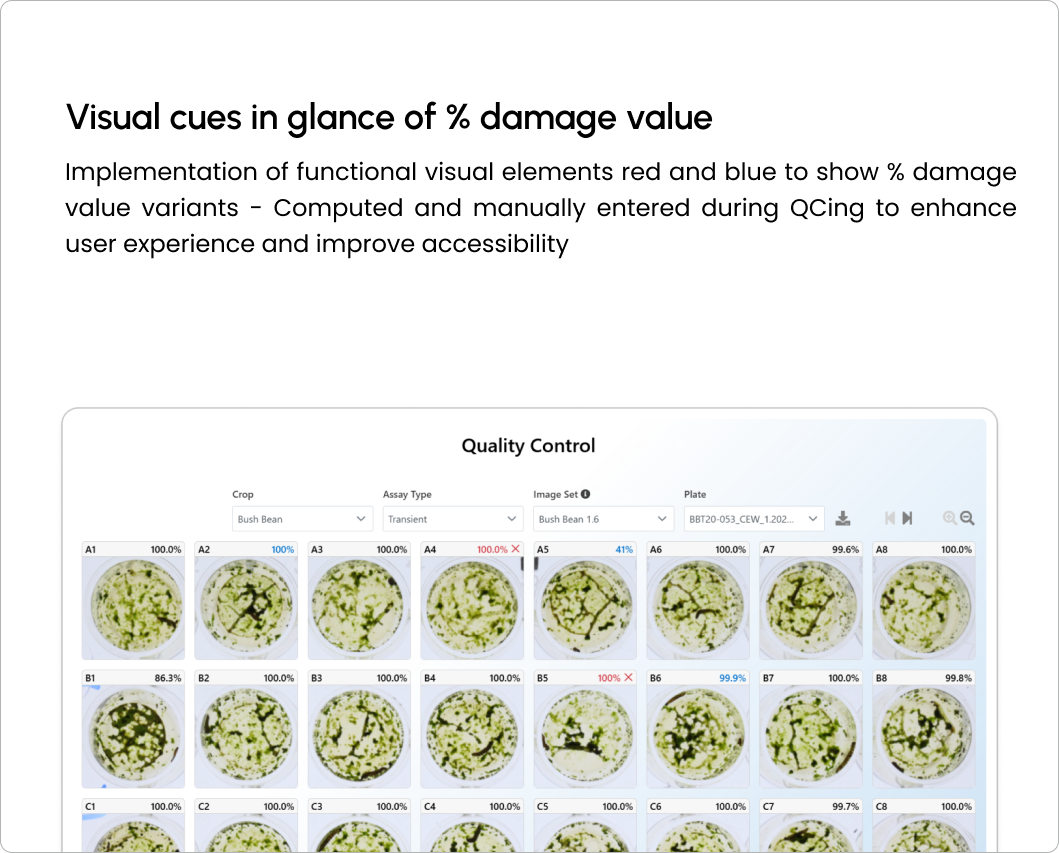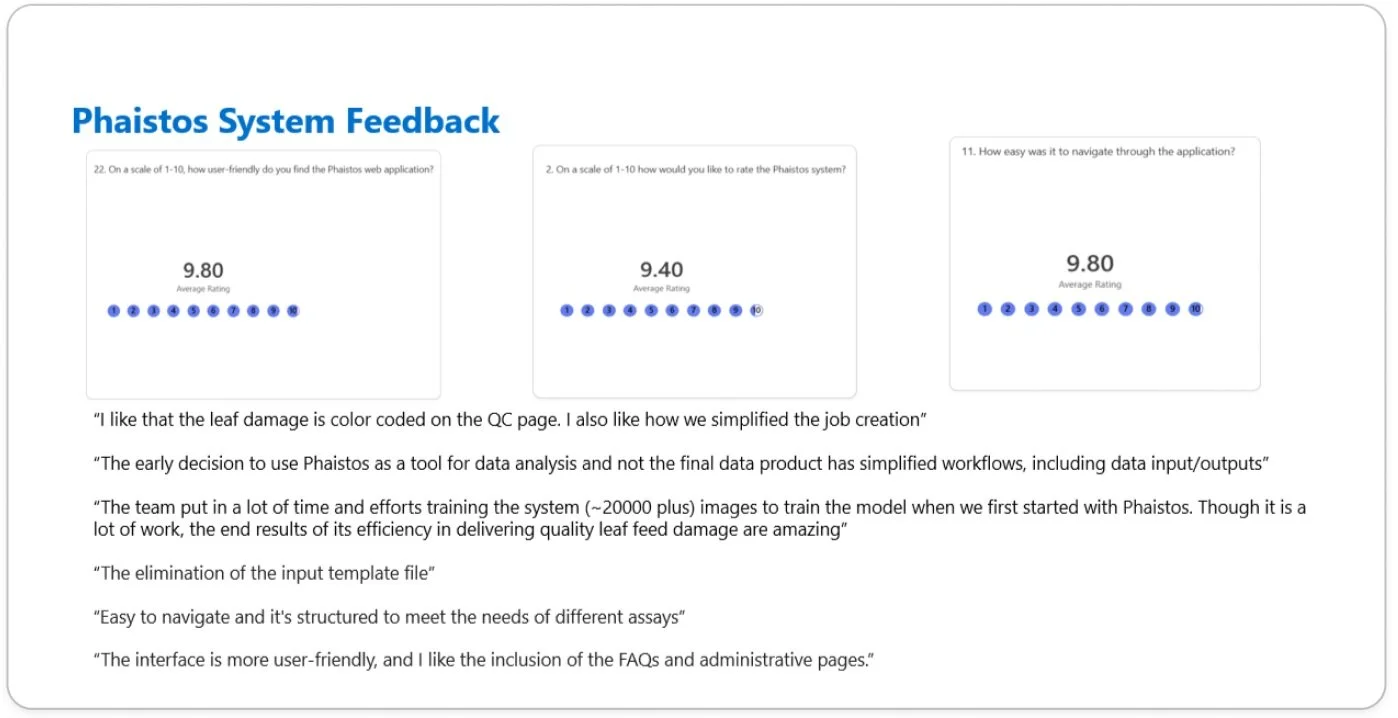Model as a Service UI/UX Design | Data Efficiency & Model maintenance
01. Overview
This case study showcases a machine learning program that scores leaf disc images and produces an output with the % Damaged value, showing how much of the leaf has been fed on by the insects.
Final Design Tiny Details.Big Impact.
Role
Product Designer
Team
1 Designer, 2 Developers, 1 Solution Architect, 1 QA, 1 Product Owner, 8 SMEs
Timeline
June 2024 - Feb 2025
Tools
Figma, Teams, Jira
Project Overview
This round of enhancements needed to update and streamline leaf feeding damage models for accuracy and ease of future model maintenance. Another Phytotoxicity machine learning model needed to be developed, deployed, and results made available for use by Phaistos; The model needed to support multiple crops, including soy, cotton, bush bean, and canola. Thirdly, decrease the variability and time spent in manual scoring and increase lab efficiency and assay precision and reliability and work on modernizing the UX and backend enhancements. The Input and output data points quality needed to improve making it available for API consumption.
Challenge
Corteva relies on some outdated systems, which can limit our ability to roll out innovative ideas. My challenge was to create an engaging, intuitive progressive web application that is informative and persuasive for the lab users to conduct experiments and track them.
03. Key Challenges Breaking Legacy
Barriers
Solution
To strike the right balance between constraints and creativity, I would conduct UAC meetings with Product Owner, Solution Architect and brainstorm how we would want the system to look like. We start with baseline requirements focusing on MVP to ensure core needs are met. Our focus was to create a system that is more functional and at the same time user friendly for all the SMEs.
04. Primary Research + ContextualisationWhat is Phaistos and why was it important?
This is something that would remain confidential as the project comes under Research and Development.
Pain points of the current process
After further investigation, I found three factors that needed to change
Not at all user-friendly😬
Too much information and no guidance🤕
Followed by huge Tech Debt 🥸
What will success look like?
An increased percentage 📈 in application usage and cater to make the system more robust so that it can handle two Machine learning models which can be deployed and the results are made available in the UI and backend for the Power BI team to create reports.
06. Design FoundationUX Auditing
It was an easy way to pinpoint less-than-perfect areas of the application, revealing which parts of a site were causing headaches for users and stymieing the process flow - creating a job, viewing the jobs, quality controlling the job and making the data available in the form of excel sheet with only the data fields that made sense to the Phaistos research team.
Execution
USER FEEDBACKWINNER WINNER CHICKEN DINNER!
Survey feedback
Outcome
It was fun to work on this interesting project since it involved image processing classification of leaf feeding damage model. I got to visit lab and understand how the research that happens at Corteva is vast and intricate. This project was a stepping stone in the vast R&D projects that Corteva conducts.
My biggest challenge was…
Understanding the domain and its complexity. This was my second time working on ML projects and it is always a learning experience as to how the model development part took place.
My biggest takeaway is…
User-Centric Design Drives Engagement. Setting up brainstorming sessions with stakeholders is the key to meeting the requirements and setting the right expectations.











